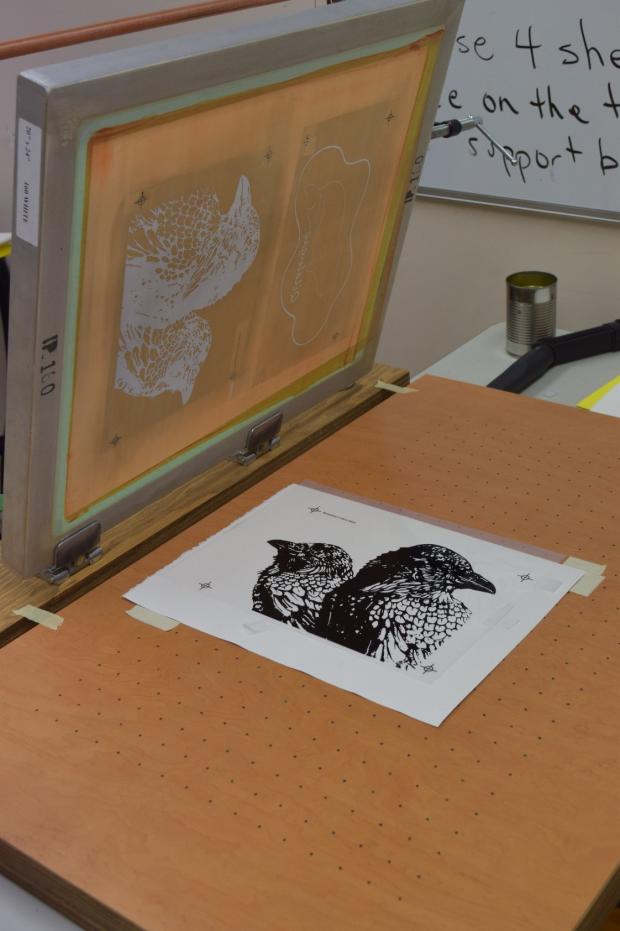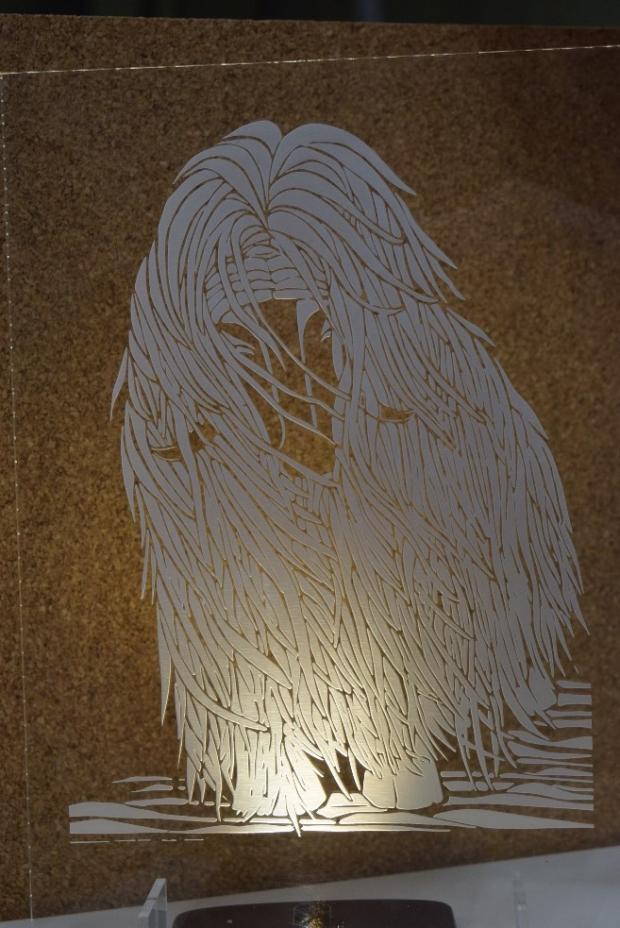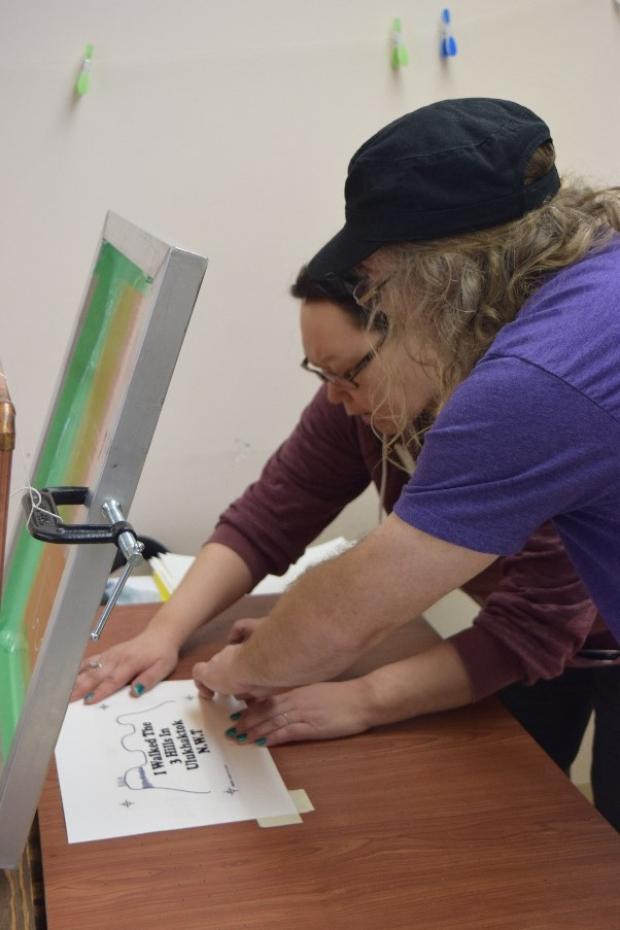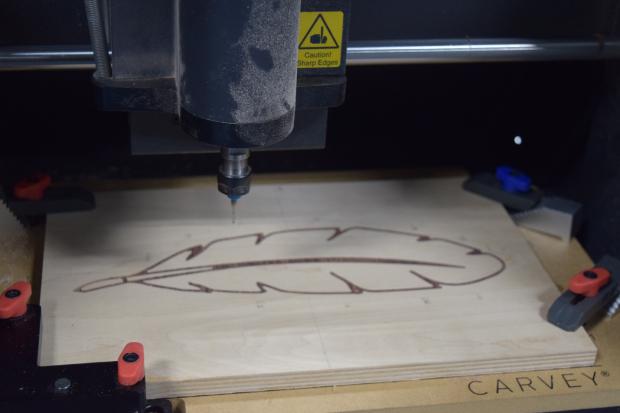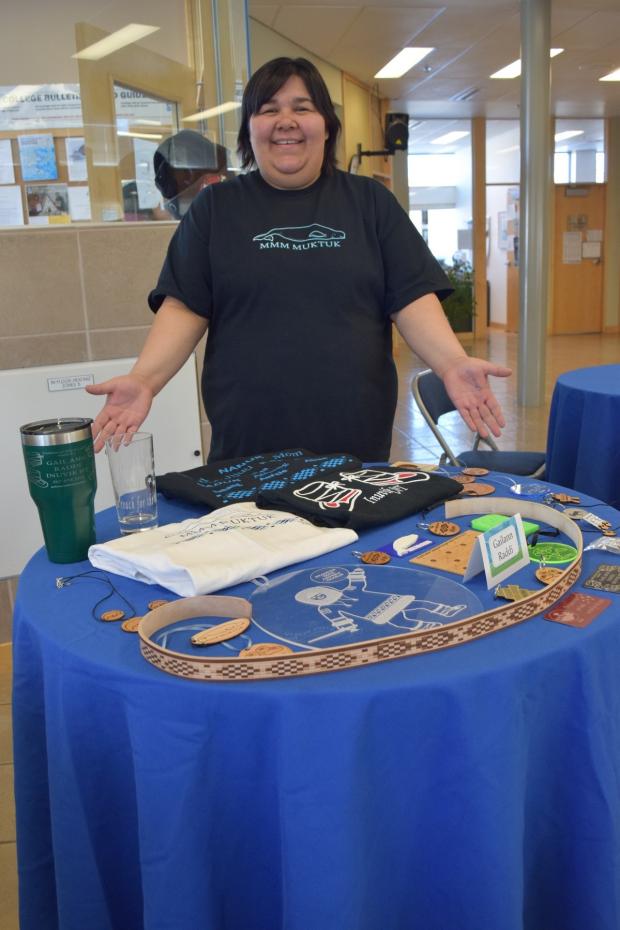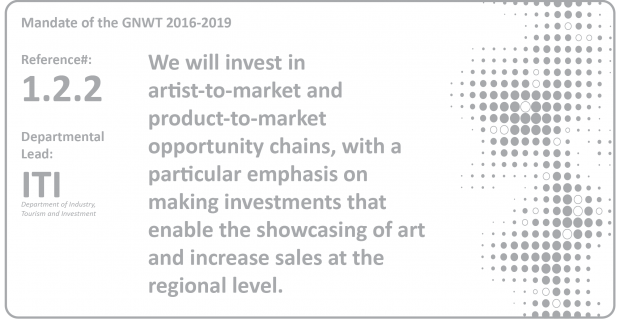May 30, 2018
When it comes to economic development, the Beaufort Delta has never shied from innovation. And thanks to a new training initiative merging arts and crafts with technology and manufacturing; the NWT’s northern-most region is once again breaking new trail – this time for the knowledge economy.
Ten local artists from Tuktoyaktuk, Tsiigehtchic, Ulukhaktok and Inuvik were selected for the 10-week pilot project that built and expanded their artistic talents and skills with training in computer design software and production and manufacturing technologies.
The training allowed them to expand and present their art in new forms.
Their training, which took place between January and March this year, was held in a “makerspace” environment – the collaborative setting commonly associated with the knowledge-economy for learning and innovation - often with high-tech tools.
The project was conceived and funded in part by members of the Beaufort Delta Regional Training Partnership, including Aurora College and the Aurora Research Institute, the Gwich’in Tribal Council; the Inuvialuit Regional Corporation; and the Inuvialuit Community Economic Development Organization.
The GNWT’s Departments of Industry, Tourism and Investment (ITI) and Education, Culture and Employment (ECE) were pleased to provide funding, alongside these partners, to make the training possible.
In all, it included computer-assisted design, 3D printing, Adobe Illustrator, silk-screen printing, laser cutting, Computer Numeric Control milling, and business basics.
Related Stories:
“This is the first time that we have tried anything like this here,” says Michel Lemieux, ITI’s Trade and Investment Manager for the Beaufort Delta. “It was an overwhelming success,”
The best part of this success story is that the partnership has allowed for the purchase of several pieces of equipment including three CNC Milling Machines, Wacom tablets and silk screening equipment. This means that the learning and development can continue with new participants in coming months.
“Our intention is to offer more workshops and to also start building business opportunities around them,” Lemieux notes.
The production of arts and crafts for sale is recognized by ITI as a form of cottage-based manufacturing - and an important part of the local economy especially in smaller and more isolated communities.
Creating and supporting business and manufacturing opportunities for local artists is part of the GNWT’s mandate to diversify the economy.



